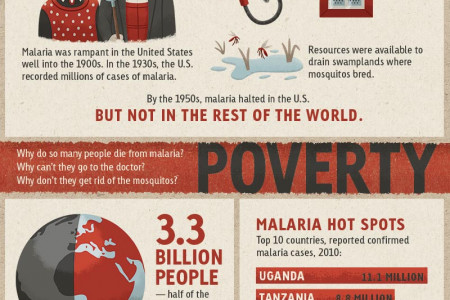
Facts and Hidden Dangers About DEET
DEET Facts ABOUT and hidden dangers DEET (NN-diethyl-m-toluamide) is a slightly yellow chemical oil that is a common active ingredient in insect repellents It is considered one of the most effective mosquito repellents on the market, and billions of people have used it over the past 45 years WHAT IS DEET H.C- HISTORY OF DEET 1946 DEET was developed by the US Army after their experience of jungle warfare in WW11. It was originally tested as a pesticide on farm fields 1957 Entered military use Entered civilian use. 1/3 Over 33% of the U.S. population uses DEET each year. HOW DEET WORKS DEET was believed to "block" an Recent studies at the University of Myth: insect's senses, preventing them from being able to detect and smell humans. Fact: Coliformia. Davis have shown that mosquitoes intensely dislike the smell of DEET, effectively repelling them. DEET DEET GROSS! @#8! Helpful fact: DEET repellent lotions & sprays are sold in varying concentrations, anywhere from 4%-100%. The higher the concentration is, the longer the repelling effect lasts However, the Center for Disease Control and Prevention (CDC) states that any concentration more than 50% doesnt offer any added protection. DEET effectivness wears off... A 2013 study at the London School of Hygiene and Tropical Medicine has found that DEET works the first time for mosquitoes, but begins to wear off just after a few hours After reapplying, the DEET was found to be less effective and the mosquitoes began to ignore it. Mosquitoes are quickly evolving to becoming resistant to DEET! DANGERS OF DEETA Did you know that... DEET can melt plastic. DEET is an effective solvent, and may dissolve plastics, spandex, other rayon, synthetic fabrics and painted or varnished surfaces including nail polish. DEET can cause nerve damage, severe skin irritation, blistering & burning. So is DEET safe? Or is it toxic? Although recommended as an effective insect repellent by the Center for Disease Control, DEET is not without controversy or side effects. Reported Incidences: Potential Health Potential Environmental Effects: Effects: • Detected in groundwater • Slight toxicity to coldwater fish and some species of freshwater zooplankton DEET-related deaths • Neurotoxicity Kidney/Liver Damage • Sensitizer/Irritant • Birth/Developmental 46 DEET-associated seizures Tips from the CDC and other experts for safe DEET use! Safety Tips AGE APPLICATION DEET % <2 months DON'T USE DEET! DON'T USE DEET! 2 months - 2 years No more than once a day 10% or less 2-12 years No more than 3 times a day 10% or less 12 years - Adults Use as directed on product 50% or less Keep DEET out of eyes, mouth & ears. Apply DEET only to exposed skin. Avoid sunscreen & DEET combos. Apply DEET only to exposed skin and/or clothing Putting DEET on DEET SUNSCREEN Avoid products that have DEET and sunscreen mixed together. Unlike DEET, sunscreen requires frequent reapplication. DEET doesnt wear off as quickly as sunscreen, so you could end up skin that will be Dont spray it directly on your face, don't inhale it, and don't apply it near food or enclosed areas. Once you return indoors, wash it off with soap and water to avoid DEET covered with clothing will cause your skin to absorb the DEET. A thin layer is enough - avoid heavy application. with unsafe amounts of DEET buildup on your skin. on your skin. SAFE ALTERNATIVES TO DEET >> Why take the risk when there are safe & natural alternatives? GERANIOL OIL • No Health Risk • No Toxicity Geraniol oil is an effective plant-based insect repellent extracted from geranium plants grown in Nepal and Southeast Asian countries LEMONGRASS & CITRONELLA OIL • No Health Risk • No Toxicity Lemongrass oil and citronella oil are natural, pleasant smelling oils that repel insects such as mosquitoes, fleas, lice and ticks. They are extracted from the lemongrass plant. The oils mask the scents that are attractive to insects, making it difficult to locate their target to feed. DO YOU LIKE THE IDEA OF A NON-TOXIC, NATURAL INSECT REPELLENT OPTION? They are safer, easier to use, smell a lot better and not harmful to the environment! You might want to ty.... SUPERBAND® (find them at www.bugbutton.com) SuperBand is an insect repelling wristband that uses a powerful combination of geraniol oil, lemongrass oil and citronella oil. I's waterproof and easily slips onto your wrist or ankle and lasts up to 200 hours Since it's in the form of a wristband, no chemicals need to be applied to the skin. Messy sprays or lotions are no longer needed, making it a safe and family-friendly solution. SOURCES: http://wwwrodalecom/mosquito-repellents-without-deet?page-0,0 http://odventurehowstuffworkscom/outdoor-activities/hiking/deet.htm http://wwwquantumhealthcom/news/dangers_of_DEEThtml http://wwwn.timescom/2008/08/19/science/19obdeet.html?s-0 http//wwwwebmdcom/skin-problems-and-treatments/news/20040916/bug-spray-sunscreen-may-not-be-good-mix http://www.beyondpesticides.org/gateway/index php?pname-deet htm http://en.wikipedia org/wiki/DEET#citenate-24 http//www.buzzlecom/artides/lemongrass-ail-as-an-insect-repellent.html http://en.wikipedia org/wiki/Geraniol#cite note-3 http://en.wikipedia org/wiki/Citronella._oil http://www.bbccouk/news/science-environment-21519998 http://wwwplosoneorg/artide/info%3Adoi%2F10.1371%2Fjournal pone0054438#dbstract0 http://www.cdcgov/malaria/toolkit/DEETpdf Concept & Design by wwwbugbutton.com
Facts and Hidden Dangers About DEET
Source
Unknown. Add a sourceCategory
HealthGet a Quote



